Podiatry in Allentown
Lehigh Valley’s Leading Foot and Ankle Experts
Precision Surgery, Lasting Relief for Healthy Feet & Ankle Mobility
Now Offering Physical Therapy!


Top Rated Podiatrist in Allentown
Our practice is a leading choice for foot and ankle care, including for diabetic foot wounds, chronic wounds, and Charcot foot. Our foot and ankle surgeons are skilled in both advanced surgical and non-surgical treatments. We specialize in a range of procedures from minimally invasive surgeries to complex reconstructive operations, alongside innovative therapies for sports injuries and wound care. This combination ensures we can effectively manage a wide spectrum of foot and ankle conditions, from everyday issues to complex cases requiring urgent surgical attention.
Our patient care is highly personalized, focusing on tailored treatment plans that often include surgical intervention for foot and ankle issues like chronic pain and injuries. Our skilled surgeons use advanced, minimally invasive techniques to ensure optimal outcomes and quicker recovery. We prioritize comprehensive support from diagnosis through post-surgery, aiming to improve functionality and quality of life.
Personalized Care from Our Team
No two individuals have identical feet or experience the same foot conditions. That’s why injuries, even when they involve the same part of the foot or ankle, can manifest differently from one person to another. From bunions to plantar fasciitis and achilles tendonitis, each condition requires personalized attention and treatment. Our podiatric specialists are here to thoroughly assess your specific situation and devise a tailored treatment plan aimed at addressing your unique needs. Our dedicated team is committed to guiding you through each appointment with personalized care and attention, ensuring you receive the best possible care for your foot health.

PA Foot & Ankle Associates’s
4-Phase Recovery Program

Experiencing foot or ankle pain can be incredibly distressing, leaving you uncertain about where to find relief. At PA Foot & Ankle Associates, our expert surgeons are dedicated to working closely with you to uncover the underlying cause of your pain. We’ll craft a customized treatment plan designed not only to alleviate your discomfort swiftly but also to address the specific needs of your feet or ankles. Beyond in-practice treatment, we’ll equip you with valuable resources, including targeted exercises and tips for pain management, to support your recovery journey outside our doors.

Understanding that managing pain is crucial is one thing, yet maintaining motivation beyond the initial relief phase can be challenging. Once the immediate discomfort diminishes, it’s common to feel a bit lost or struggle to maintain progress, feeling as though you’ve hit a plateau. In Phase II of our podiatric care, our goal is to help you recapture your mobility, enhance your flexibility, and bolster your strength, ensuring you can confidently continue your journey toward optimal foot health with the guidance of our skilled surgeons.

Being sidelined by a foot or ankle injury can be immensely frustrating, especially when it keeps you from engaging in activities you love. It’s challenging to watch life pass by from the sidelines, feeling left behind. This is where our specialized podiatric surgeons step in. We’re dedicated to rehabilitating your injury, focusing on getting you back on your feet and returning to your usual self as swiftly as possible. Through our customized treatment plans, tailored specifically to your podiatric needs, and our experienced team of surgeons, we aim to restore your well-being and have you feeling like yourself again before you know it.

After experiencing a foot or ankle injury, it’s natural to harbor concerns about re-injury. This fear is common and entirely understandable. At PA Foot & Ankle Associates, we prioritize not just your recovery but also the prevention of future injuries. Our team of podiatric surgeons is committed to providing you with the necessary tools and knowledge to safeguard your feet and ankles against further harm. We focus on ensuring a swift and safe rehabilitation process, enabling you to return to your daily activities with confidence and peace of mind, guided by our experienced surgical team.
Success Stories & Testimonials
Meet Our Team
Dr. Thomas M. Rocchio
FACFAS
Senior Partner
Dr. Adam J. Teichman
FACFAS
Senior Partner
Dr. Simon G Tabchi
FACFAS
Treatments
Surgery
Your PA Foot and Ankle Associates Podiatric Foot and Ankle Surgeons have been intensively trained to understand and diagnose the complex interaction, disorders, and deformities of the foot, ankle, and lower leg. We use only the most appropriate surgical and non-surgical treatments..
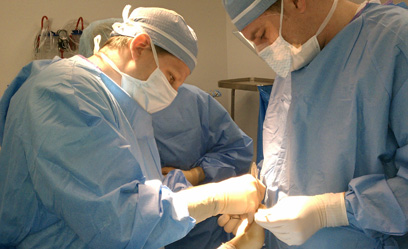
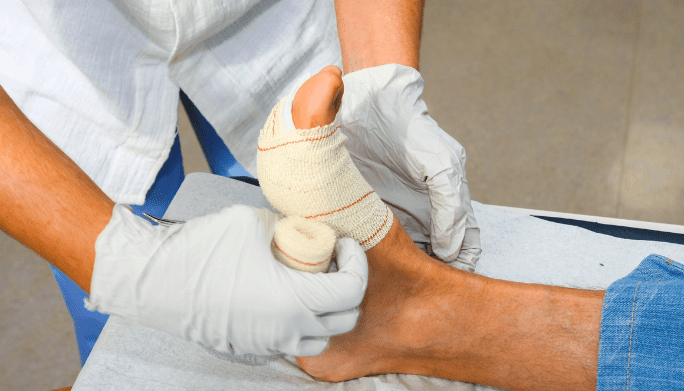
Wound Care
Are you struggling with a painful, slow-healing wound on your foot or ankle? At PA Foot & Ankle Associates, our skilled podiatrists and surgeons provide specialized wound care services to help you heal faster and get back on your feet. We understand the frustration and discomfort that foot and ankle wounds can cause..
Laser Therapy
Laser therapy, an advanced treatment modality, is revolutionizing the approach to managing foot and ankle injuries. Our team of expert podiatrists specialize in leveraging this cutting-edge technology to provide our patients with safe..
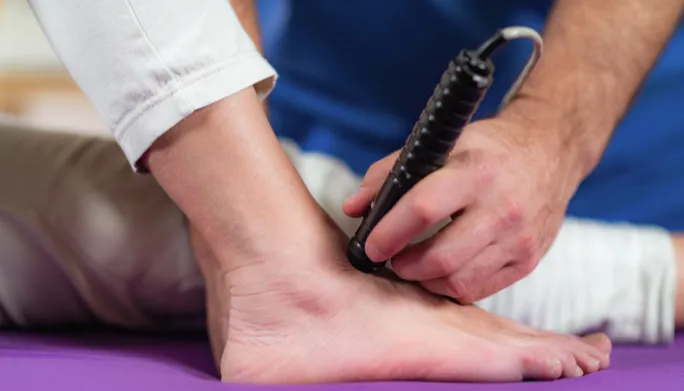
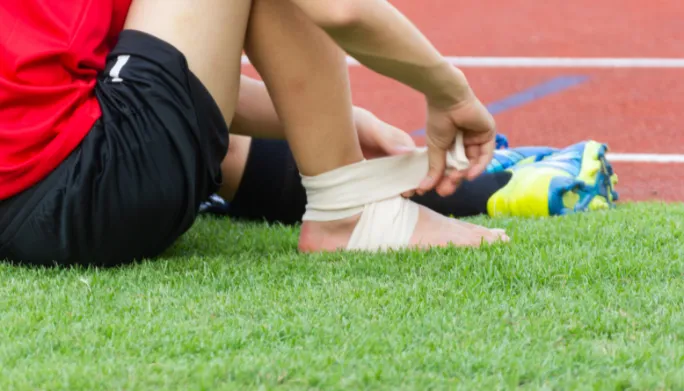
Sports Injuries
The treatment utilizes pressurized air or electromagnetic pulses, creating an acoustic wave that targets bone, tendons and soft tissue. Micro-trauma is created and triggers a healing response within the body. Cell growth is then promoted..
Diabetic Nerve Pain
We offer a new innovative treatment that provides up to 3 months of pain relief for patients with diabetic nerve pain of the feet and post-shingles nerve pain. This is the first and only treatment of its kind to deliver prescription strength capsaicin directly..
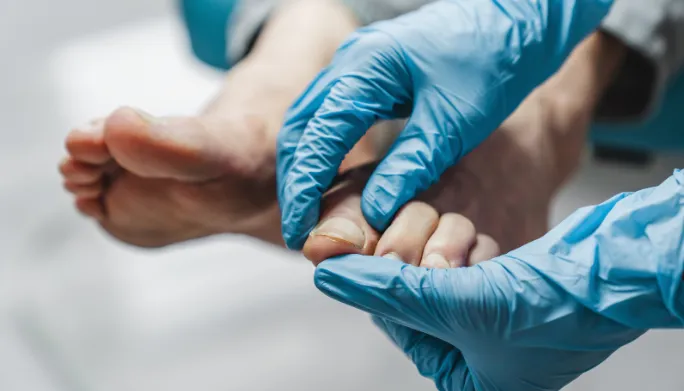
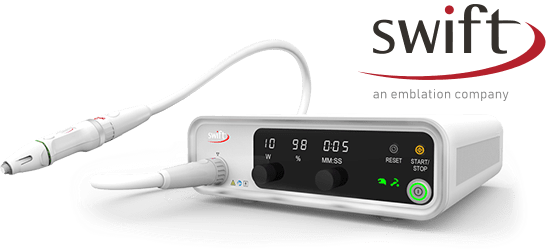
Swift Therapy
Plantar” means “Of the sole” in Latin. Unlike other types of warts, plantar warts are typically quite painful as the pressure from walking and standing forces them to grow into your skin. Like all warts, Plantar warts are caused by the human papillomavirus (HPV) virus..
Now Offering Physical Therapy!
From weekend warriors dealing with nagging pain to aging adults hoping to remain independent, patients choose PA Foot & Ankle for customized physical therapy delivered with compassion.
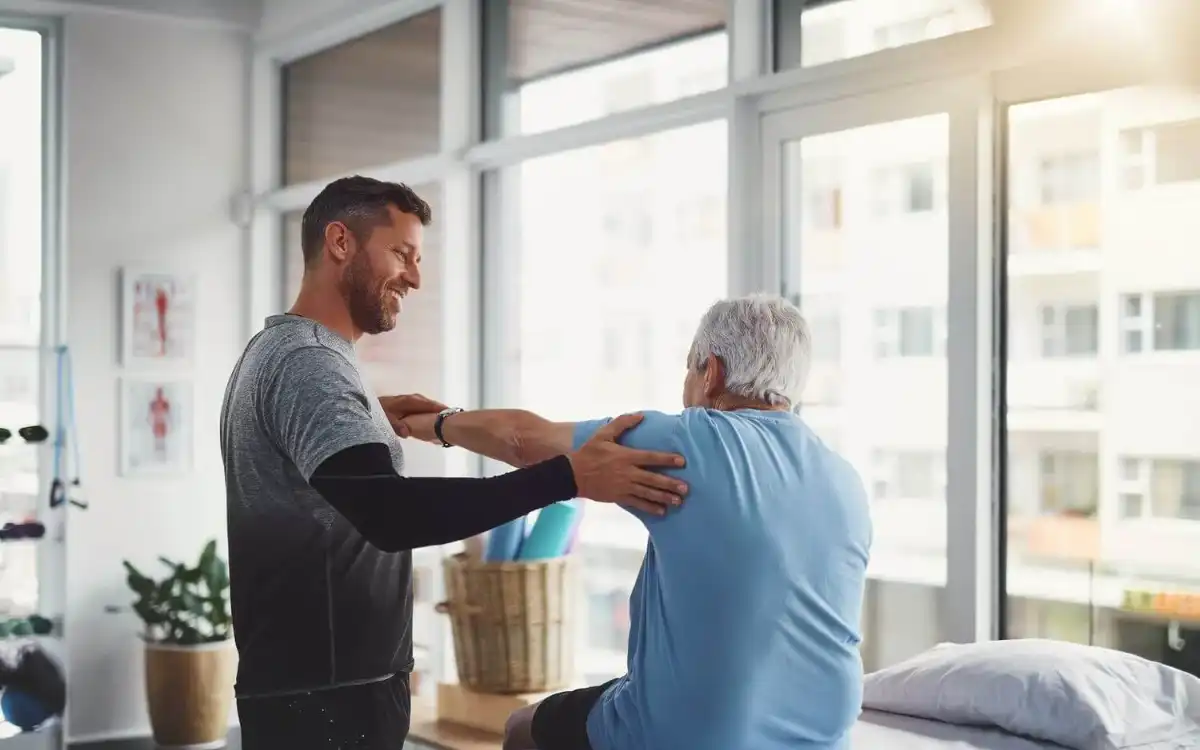
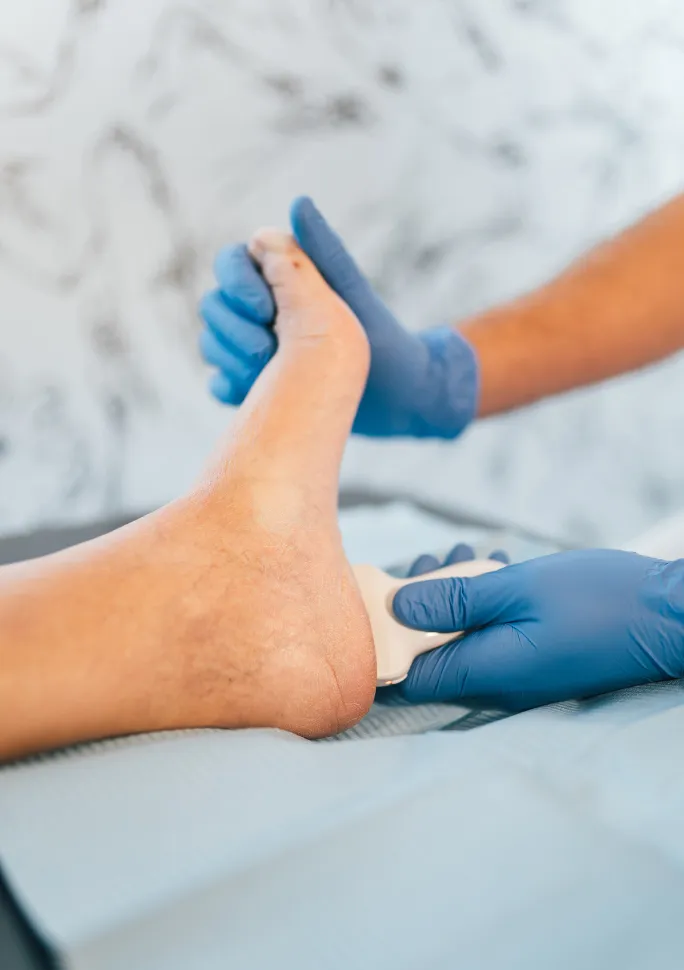
Live Pain Free in Allentown
Our podiatry team recognizes your desire for an active, comfortable, and capable lifestyle. Achieving this means having a body that functions optimally. Pain, injury, or weakness in your feet or ankles can lead to confusion and frustration, impeding your daily activities and overall quality of life. Whether you require custom orthotics for improved support, advanced treatments for limb salvage, or specialized care in sports medicine, our dedicated team is here to provide comprehensive solutions tailored to your specific needs, ensuring you can pursue your passions with confidence and comfort.
We are firmly committed to the belief that everyone deserves to have a fully functional body. Drawing from our extensive experience in dealing with foot and ankle injuries, including surgical interventions when necessary, we understand firsthand the challenges they pose. This understanding has been the cornerstone of our success in assisting thousands of individuals to overcome these hurdles and return to their active lifestyles.
This is how we do it:
- Tell us your story.
- Get your customized plan.
- Start feeling better.
- Conquer your goals.
Our Podiatry Programs
Our podiatry practice provides top-tier podiatric care, incorporating surgical interventions tailored to individual needs. Each patient’s journey starts with an evaluation by our podiatric surgeons, who may recommend surgery for structural corrections, pain relief, and function restoration. From pediatric flat foot to heel pain in children, we address a wide range of conditions affecting young patients, ensuring their comfort and mobility. Post-surgery, we prioritize pain management and gradually introduce corrective and rehabilitation exercises under our surgeons’ guidance to strengthen the feet and ankles, enhance recovery, and facilitate a return to daily activities.
As recovery progresses, we focus on exercises that reintroduce everyday movements, optimizing foot function post-surgery. The final stage, led by our surgeons, emphasizes injury prevention to maintain surgical benefits and protect against future issues. Throughout, our team ensures personalized support, adapting recovery plans as needed to achieve long-term podiatric health.

Check out
Dr. Teichman on News Radio
790 am WAEB.

Proud Partners

American College of Foot & Ankle Surgeons

Proud Partners of the Lehigh IronPigs Charity

Preferred Provider of the St Lukes Health Network

Members of American Podiatric Medical Association
Frequently Asked Questions
Where are your podiatry offices?
We have podiatry offices throughout the Lehigh Valley: Allentown, Easton, East Stroudsburg, Lansford and Northampton, PA. Individual location info., maps and directions can be found by clicking here.
Do you have payment plans for patients without insurance plans?
We try to accommodate anyone needing treatment. If you do not have health care insurance, please call us at 610-330-9740 to inquire about our self-pay pricing and payment plans.
Do you accept credit cards?
We accept American Express, Mastercard and Visa for payment at the time of visit.
Do you accept my insurance plan?
We participate with the majority of healthcare insurers. For a complete listing please see our About page here.
How long will I have to wait for an appointment?
Most appointments can usually be made within that same week. If there is an emergency we can usually see the patient immediately provided the office is open. Click Here to Request an Appointment
Is full payment required at time of visit?
We do require that your deductible be paid in full at the time of the visit.
Who is responsible for getting physician referrals?
The patient is always responsible for getting their own referrals if one is required by your health care insurance.
Do you accept worker's compensation patients?
Yes, we will treat worker’s compensation claims.
Are custom orthoses (orthotics) available?
Yes, they are. You can have a digital scan of your feet taken in the office. Your custom inserts are made from this “map” of your feet.
Can X-RAYS be taken in the office?
Yes, they can. All of our offices are equipped with x-ray equipment.
Do you treat pediatric foot problems?
We treat all pediatric foot and ankle conditions, from warts and flat feet to pediatric foot and ankle deformities. For a more complete listing of treatments and services we provide visit our pediatric foot page.
Do you treat sports injuries?
Yes, we do treat sports injuries and can accommodate same-day emergency appointments. Our offices are equipped with diagnostic imaging equipment. For complete info, see our sports injuries page.
How long do custom orthotics last and will they continue to help me?
This is dependent upon the type of material used to make the custom orthotic. Polypropylene orthoses usually last 3-5 years. Graphite orthoses last more than 5 years, and leather orthoses last about 3 years.
How do orthotics help correct foot problems?
Orthotic inserts stabilize the foot and prevent improper motion. They allow the muscle and other soft tissue structures to function properly.
How much is the initial office visit?
If you are utilizing your insurance coverage, we can assist you in confirming any co-pay or co-insurance you would be responsible for. If you are self-pay, please call us at 610-330-9740 to inquire.

